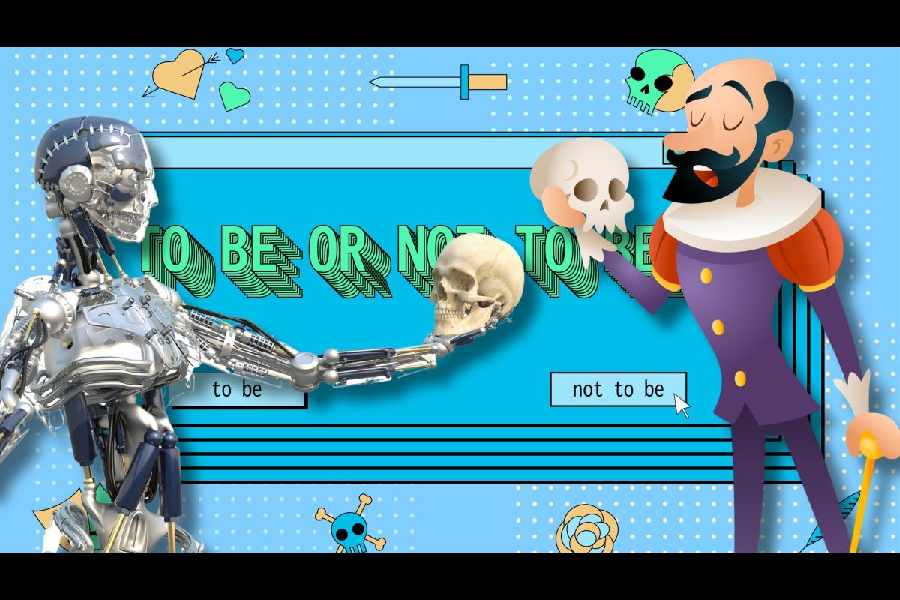William Shakespeare, the most storied and fancied of writers in English, continues to rule our imagination and syllabi around the world.
The timeless bard’s work could be a struggle for many students, but with a nudge from artificial intelligence, the necessity of buying CliffsNotes or calling the professor twice may take a backseat.
Shakespeare’s complete works are now a featured “notebook” in Google’s NotebookLM, a note-taking tool and virtual research assistant — more of a chatbot professor — that anybody can refer to and interact with when stuck with the meaning of “to be or not to be” or symbolisms in Macbeth.
NotebookLM has the potential to become a destination for all kinds of in-depth answers.
Google is partnering with authors, researchers and publications to launch “featured” notebooks within the platform. These notebooks allow users to interact with the app’s tools, including its AI podcast maker, to learn more about each topic.
Imagine the influence of such “notebooks” on the large number of notebooks available, say, in Calcutta’s College Street. Today, it’s the Bard of Avon who has a place in the app; tomorrow, it could be George Bernard Shaw’s works.
At the moment, Google has released eight “featured” notebooks, including one dedicated to longevity from Super Agers author Eric Topol, another focused on parenting advice from Jacqueline Nesi’s Substack newsletter, Techno Sapiens, a notebook on the complete works of Shakespeare, besides a couple from The Atlantic and The Economist.
There is also an overview of long-term trends in human wellbeing published by the University of Oxford-affiliated project, “Our World In Data”, and a notebook tracking the Q1 2025 earnings reports from the “top 50 public companies worldwide” for financial analysts and market watchers.
The notebooks cover topics such as science, travel tips, advice on parenting and wellbeing and finance.
Users are given a suite of tools to explore the notebooks, including AI-generated Audio Overviews and Mind Maps, a feature that creates illustrated diagrams connecting disparate themes and ideas extracted from your notes.
For instance, you can ask the Shakespeare “notebook” “why does Antony shake hands with the conspirators”? A detailed explanation appears that may deter students from looking up SparkNotes.
“For newcomers to NotebookLM, the notebooks are a preview of how useful the product can be when you’ve assembled a collection of sources for whatever project you’re working on,” Steven Johnson, the editorial director for NotebookLM, wrote in a post on X.
“But it’s also a preview of a potential future where there are thousands of expert-curated notebooks on all sorts of topics that you can add to your own collection, to have the knowledge you need on tap.”
NotebookLM, as a tool, could be a rabbit hole that users may go down and spend hours looking fornew perspectives.
In June, Google started allowing users to sharetheir notebooks publicly,and with the new update, it could be a step towardsallowing people to explore a range of premade notebooks rather than creatingtheir own.
Steven Johnson, editorial director, Google Labs, said: “Over the past four weeks, more than 1,40,000 public notebooks have been created, on a wide range of topics.”
NotebookLM becamepopular when Google introduced Audio Overviews in September, AI-generated podcasts about the material uploaded to a NotebookLM notebook.
“The books of the future won’t just be static: some will talk to you, some will evolve with you, and some will exist in forms we can’t imagine now,” said Nicholas Thompson, CEO of The Atlantic.










